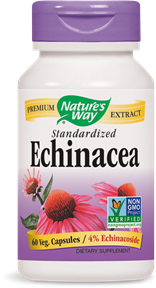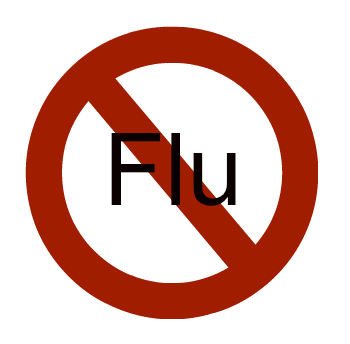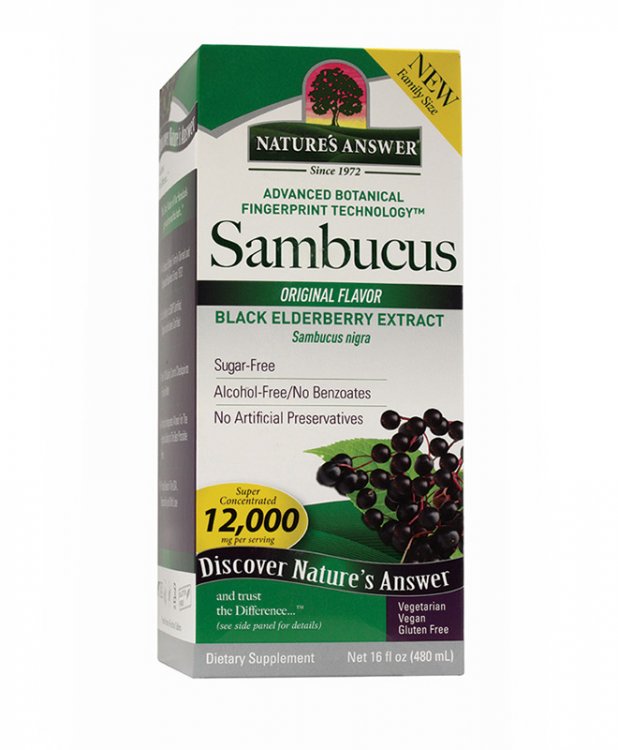Q: Do you sell food grade hydrogen peroxide? What is it good for? Is it really any different from the little brown bottles for sale at the pharmacy?
A: We do sell 35% food grade hydrogen peroxide. Food grade hydrogen peroxide has innumerable uses though it is important to dilute it first. It can be used as a completely non-toxic household cleanser, as a fruit and vegetable wash, throat spray, mouthwash, facial toner, and even internally to detoxify the body. 35% food grade hydrogen peroxide is very strong and MUST be diluted before use.
Hydrogen peroxide kills bacteria and viruses by destroying their cell walls, then that hydrogen peroxide breaks down into simple oxygen and water, with no chemical residues left behind.
I love to spray it on my countertops, cutting board, garbage can, and anywhere else that seems germy. Hydrogen peroxide is odorless and after it does its antibacterial work, leaves nothing behind but oxygen and water, so it’s completely safe to use around children and pets.
Conventional hydrogen peroxide sold at grocery stores and pharmacies contain stabilizers, metals, and additives to make it last longer on the shelf. Our food grade hydrogen peroxide is 100% pure and should be refrigerated since it does not have added preservatives.
When used as a household cleanser (diluted to a 3% solution), hydrogen makes a wonderful germicide. It does need some time to work however, about 6 minutes according to the CDC. I find the best way to use is to give countertops or other surfaces a quick spray and then let it sit.
Food grade hydrogen peroxide is great for cleaning, but it also has benefits for internal use. When hydrogen peroxide is taken internally, it can increase oxygen levels in the body.
Pathogens in the human body are primarily anaerobic, meaning that they cannot survive in oxygen rich environments. Many naturopaths recommend food grade hydrogen peroxide as a therapy for a number of ailments, including its benefit as a possible cancer therapy.
In the case of hydrogen peroxide, more is not necessarily better, and it is crucial to use the correct dilution. We have a wonderful, free hydrogen peroxide booklet at the store which gives the daily dilutions best used for an internal detox regimen. Just stop in and ask and we’d be happy to give you one.
Hydrogen peroxide is wonderful for all so many things, I’d definitely recommend getting some! Again, proper dilution is extremely important. To make a 3% solution, which is suitable for topical, oral, or household use, combine 1 ounce of 35% hydrogen peroxide with 11 ounces of purified or distilled water. The easiest way I’ve found to do this is to combine 2 tablespoons of 35% hydrogen peroxide in a glass measuring cup. Adding water to the 1 ½ measuring line will make the 12 ounces from the recipe above.
Hydrogen peroxide should be used in a dark colored bottle since it degrades in sunlight. We have a wide selection of amber glass bottles that are perfect for using for hydrogen peroxide dilutions, from throat spray size bottles to 8 and 16 oz. glass amber spray bottles for making your own cleaning products. I made a hydrogen peroxide throat spray that I have on my bathroom counter using a 3% solution of hydrogen peroxide in one of our 2 oz. amber glass spray bottles mixed with several drops of peppermint oil. It gives you a burst of fresh breath and also helps to kill any bacteria lingering in the back of the throat.
NOTE: 35% Hydrogen Peroxide is highly concentrated and extremely strong. Keep out of the reach of children. If it is spilled on the skin, wash immediately in cold water. Do not allow it to touch the eyes, if this happens, wash and rinse thoroughly with cold water. Store 35% H202 in the refrigerator or freezer. It will add to the longevity and will not freeze.
To make 3% H202, mix one ounce of 35% food grade to 11 ounces of distilled water (preferably) or filtered water.
Personal Uses for H202
Athlete’s Foot: Soak feet 10-20 minutes each night in 3% H202 until condition is in remission.
Bath: Add one cup of 35% hydrogen peroxide to a full bathtub for a detoxifying bath. Note: try not to use this after 6-7pm as the increased absorbed oxygen may give you extra energy.
Douche: Add five to six tablespoons 3% H202 to one quart of distilled of filtered water.
Enema: Mix up to six tablespoons (maximum) 3% H202 to one quart of distilled water.
Foot relaxer: Add one cup of 3% H202 to one gallon of hot water and soak one half hour.
Shower: Spray after showering, with 3% H202 to restore the natural acid mantle of the skin. (Soap used in the shower removes the protective acid mantle of the skin.)
Facial: For rejuvenation and freshening after washing, saturate a cotton wad with 3% H202 and gently rub on face and neck.
Mouthwash: On arising rinse mouth with water then gargle and wash mouth with 3% H202, swishing for one half to one minute. (Note: a dash of chlorophyll adds flavor and effectiveness.) Helps prevent colds.
Nasal Spray: One tablespoon of 3% H202 added to one cup of pure water. Spray into nasal passages to relieve congestion.
Toothpaste: Make a paste of baking soda and H202 and store in tightly sealed container or dip brush in 3% H202 and brush teeth.
Denture Soak: Use 3% in denture container and soak 30 to 60 minutes or overnight.
Deodorant: (Body) Saturate cotton wad with 3% H202 and rub on under arms.
Additional Uses For Hydrogen Peroxide
Pets: Add one ounce 3% to one quart drinking water.
Vaporizer: One ounce of 35% H202 per gallon of water in a vaporizer improves nighttime breathing and helps clear sinus and bronchial congestion.
Vegetable Soak: (in place of Clorox.) Add ¼ cup of 3% H202 to a gallon of cold water. Soak light leafy vegetables 15-20 minutes. Soak thick skinned fruits and vegetables for 30 minutes (apples, cucumbers, tomatoes & etc.) If time is a problem, you can spray the vegetables with straight 3% let stand a couple of minutes, rinse and dry.
Leftover Tossed Salad: Put 1 Tbsp. 3% in ½ cup of water and spray the top of the salad with the solution before covering and refrigerating.
Marinade: In glass, stainless steel or ceramic casserole dish (never aluminum), place meat, poultry or fish and cover with 3% H202. Cover loosely and store in refrigerator one half to one hour. Rinse well then cook.
Kitchen Cleaner, Freshener, Disinfectant: Keep a spray bottle of 3% hydrogen peroxide in the kitchen, use it to wipe off counter tops and appliances. It disinfects and gives the kitchen a fresh smell. Works great inside the refrigerator and on surfaces.
Dishwasher: Add two to three ounces of 3% H202 to regular wash for dishes. Add the same for washing dishes in sink.
Laundry: Instead of bleach, add six ounces of 3% of H202 to small load of laundry: eight ounces to large load.
Mold: Spray or wash well with 3% H202, floors, walls and furniture as allowed. Wipe dry with cloth if to damp. If problem is real bad in a room, use humidifier with ½ cup of 35% to 2 gallon of water. (Note: Molds and mildews are a major cause of allergies, colds, bronchial and flu sensitivities: general malaise, breathing problems and low energy.)
Insect Spray: In one gallon water stir 8 ounces (one cup) refined white sugar and 5 to 8 ounces of 3% H202.
House & Garden plants (for growth): To one quart add one ounce 3% H202 or 16 drops of 35% H202. Mist and or water plants frequently.
Hot Tubs: Start up with using 8 ounces (one cup) 35% per 500 gallons of water. Should be maintained with 2-4 ounces of 35% weekly, depending on use and direct sunshine on water. Use in place of chlorine.
Accidents can occur with hydrogen peroxide concentrate when safety precautions are not taken and directions are not followed. For this reason, we want to stress some safety and storage tips. Read them carefully and review the way you handle the concentrate to determine whether changes must be made with your handling procedure.
1. Keep hydrogen peroxide concentrate out of the reach of children.
2. Never transfer the concentrate into unlabeled or improperly labeled containers.
3. If hydrogen peroxide concentrate is accidentally spilled on the skin, flush the area immediately with running water.
4. If undiluted 35% hydrogen peroxide concentrate is accidentally ingested, drink large amounts of water to dilute. Stay upright and contact your doctor. It could be toxic or fatal if swallowed at full strentgh.
5. For spillage of hydrogen peroxide concentrate, dispose of according to Federal, State and local regulations.
Flush the spill area with water. Do not return the spilled material to the original container. Prevent undiluted hydrogen peroxide from entering into the sewage system. Report spills in compliance with Federal, State or local regulations.
Large quantities, such as drums, should be stored in a cool, dry area. When concentrations of hydrogen peroxide come in contact with organic materials, this may form explosive mixtures (spontaneous combustion).
Small quantities of 35% food grade hydrogen peroxide should be stored in the freezer over-wrapped with black plastic and labeled as to contents. Thirty-five percent food grade hydrogen peroxide will not freeze unless the temperature is 33 degrees below zero.
Low concentrations, such as 3% or 6% would freeze, so freezer storage is not recommended. Store properly labeled containers in a cool, dry place out of the reach of children.
See the link below to download a booklet from our Hydrogen Peroxide distributor about Hydrogen Peroxide Uses and dilutions:
This article makes no claims to diagnose, treat, prevent, mitigate, or cure diseases with any advice or products. Any health related information in this article is for educational purposes only. The ultimate responsibility for your choices and their effect on your health are yours and before applying any therapy or use of herbs, supplements, etc., you should consult your health care provider.






